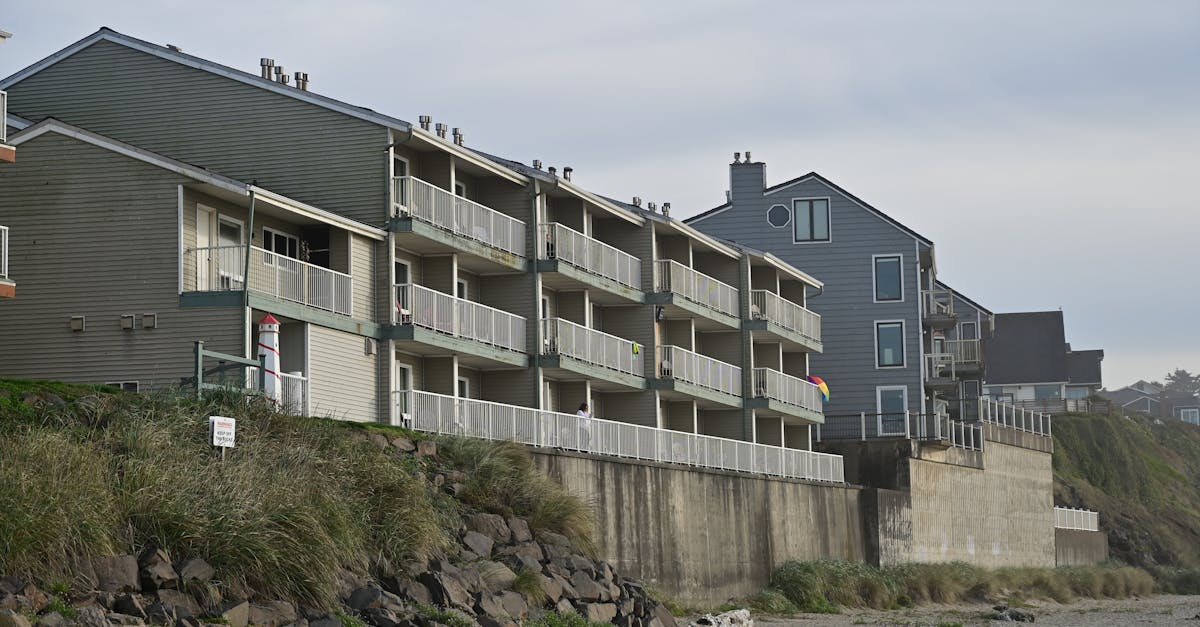
Table Of Contents
Loan Duration and Its Effect on Rates
The duration of a loan significantly impacts the interest rates offered by lenders. Generally, short-term loans tend to come with lower rates compared to their long-term counterparts. This trend is particularly noticeable in the case of Commercial Real Estate Loans. These financing options often reward borrowers with reduced interest rates for shorter loan terms, as lenders perceive less risk over brief periods.
On the other hand, long-term loans may present higher interest rates due to the extended repayment timeline. Lenders must account for the uncertainty that could arise over many years, including fluctuating market conditions and borrower stability. As a result, those seeking Commercial Real Estate Loans should weigh their options carefully, considering both the cost of interest and the impact of loan duration on their overall financial strategy.
Short-Term vs. Long-Term Loans
Short-term loans typically span from a few months to a few years. They often feature lower interest rates compared to long-term loans. This is primarily due to the reduced risk for lenders, as they have less exposure over a shorter period. Borrowers may use these loans for quick financing needs or to capitalize on immediate investment opportunities, such as purchasing equipment or funding a property flip. Commercial Real Estate Loans designed for short terms can provide the capital needed for rapid growth.
Long-term loans, on the other hand, can last from five to twenty years or more. These loans might carry higher interest rates as they involve more prolonged financial commitment. Lenders evaluate various factors including creditworthiness and the property's projected income over time. Borrowers often opt for long-term financing to stabilize cash flow and secure fixed payments over the duration of the loan. Commercial Real Estate Loans in this category are ideal for acquiring properties that generate steady income, allowing for manageable expenses while building equity.
How Lenders Assess Risk
Lenders evaluate risk through multiple criteria when considering applications for funding, particularly with Commercial Real Estate Loans. They typically analyze the borrower’s credit history, income stability, and existing debt levels. A strong financial background can position an applicant favorably. Lenders pay close attention to the type of property involved, its cash flow potential, and the market conditions in the area.
Understanding the specific attributes of the loan request is crucial for lenders. They assess the property’s location and its overall market appeal. Future revenue projections also factor heavily into the risk assessment process. A well-documented business plan strengthens a borrower's case, highlighting how the loan will contribute to the property's success and aid in repayment.
Understanding Risk-Based Pricing
Risk-based pricing is a method that lenders use to determine interest rates based on the perceived risk associated with a borrower. This concept is especially relevant for commercial real estate loans, where factors such as credit score, business history, and revenue stability come into play. Lenders analyze these elements to assess the likelihood of a borrower defaulting on a loan, which directly influences the terms offered. Higher perceived risk often results in higher interest rates, as lenders seek to mitigate potential losses.
Understanding this pricing approach can help borrowers anticipate the conditions that might affect their loan rates. A strong credit score and a solid business plan can significantly lower the interest rates on commercial real estate loans. Conversely, a lack of financial transparency or a previous history of defaults can lead to higher rates. This system encourages borrowers to present a compelling financial profile to secure the most favorable terms possible.
Tips for Securing Better Rates
Securing better rates on commercial loans involves enhancing the overall financial profile of your business. Lenders consider various factors when determining interest rates, including credit scores, financial history, and the stability of your business income. A strong credit profile showcases reliability and lowers perceived risk, which can lead to more favorable terms. Maintaining low debt-to-income ratios and ensuring a solid cash flow can also significantly improve your negotiating position, particularly when seeking Commercial Real Estate Loans.
Another effective strategy involves shopping around for the best rates and terms. Different lenders can offer varying interest rates based on their assessment of risk and their specific lending criteria. Building relationships with multiple financial institutions can provide insight into the competitive landscape. Engaging brokers who specialize in Commercial Real Estate Loans may also yield beneficial outcomes, as they often have access to private lenders who can extend customized offers tailored to your business's financial needs.
Strengthening Your Financial Profile
A strong financial profile is essential when seeking favorable terms on commercial real estate loans. Lenders often prioritize borrowers with a solid credit history, stable income, and substantial asset holdings. Prospective borrowers should review their credit reports for errors and take steps to improve their scores if necessary. Addressing outstanding debts and maintaining consistent cash flow demonstrates financial responsibility, which can be persuasive to potential lenders.
In addition to credit scores, a well-prepared business plan can significantly enhance your financial profile. This plan should outline your business’s objectives, potential market conditions, and projected revenue. Providing detailed financial statements and forecasts helps to establish credibility with lenders. A comprehensive presentation of your financial situation not only increases the likelihood of securing better rates but also contributes to long-term success in managing commercial real estate loans.
FAQS
What factors influence the interest rate on a commercial loan?
Factors that influence the interest rate on a commercial loan include the loan duration, the creditworthiness of the borrower, the type of loan (short-term vs. long-term), the lender's assessment of risk, and current market conditions.
What is considered a good interest rate for a commercial loan?
A good interest rate for a commercial loan generally ranges from 3% to 7%, but this can vary significantly based on the factors mentioned above, including the borrower's credit score and the term of the loan.
How does loan duration affect the interest rate?
Loan duration affects interest rates as shorter-term loans typically have lower rates compared to longer-term loans, which may carry higher rates due to increased risk over time.
What is risk-based pricing in commercial loans?
Risk-based pricing is a method used by lenders to set interest rates based on the perceived risk of the borrower. Factors such as credit history, business financials, and industry risk can influence this assessment.
What can I do to secure a better interest rate on my commercial loan?
To secure a better interest rate, you can strengthen your financial profile by improving your credit score, maintaining a healthy debt-to-income ratio, providing solid business financials, and shopping around for lenders to compare offers.





